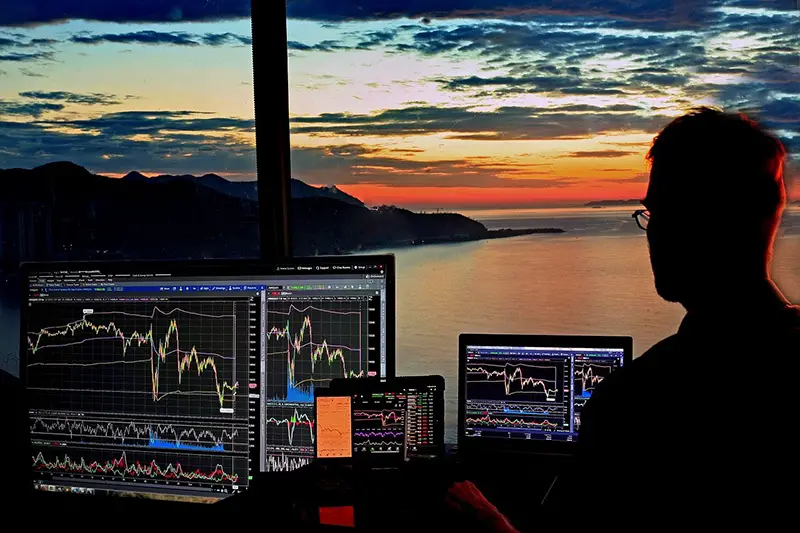Click here to get this post in PDF
Forex trading is also referred to as FX trading or forex (FX) trading. It refers to exchanging currencies from different nations on decentralized global trading platforms. Forex exchange is a critical component of the global market owing to its implications in various fields such as tourism and global business. People dealing in international transactions are often required to change their respective currency for various reasons, such as funding international trade. The market is open for traders to buy and sell different currencies 24 hours a day and five days a week. Additionally, the market does not have a centralized location since all transactions are done on electronic platforms.
It is essential to define some terms often used in this field to understand their meaning better. Among them is forex exchange, which is the speculation of the changes, either fall or rise, of the prices of different currencies against others. The prices of a currency change in their values, strengthening or weakening over time. The fluctuation in the prices creates an opportunity for forex traders to forecast the probability of the changes to make a profit. There are fundamental aspects in foreign exchange that one is supposed to understand before trying their hand in the market. These aspects include the following.
1. Currency pairs. Every forex transaction involves buying and selling two currencies that form a pair. Therefore, the currency pair comprises the base currency and the quote currency. The first currency is the base currency, and the other is referred to as the quote currency, such as EUR/USD. The currency pair’s price is determined by how many units of the quote currency are required to purchase one unit of the base currency. Consequently, the changes in the environment between the pair currencies’ nations and their trade events influence the number of units of the quote currency is required against the base currency. The ability to forecast these changes offers traders the opportunity to profit when exchanging between the pairs.
2. Factors of forex exchange. Understanding the factors influencing the forex exchange is critical of successful trading. These factors influence the valuation of currencies, and alertness to them leads to increased opportunities and better profit margins. They include political stability and economic performance, interest rates, inflation rates, trade terms, and a country’s debts. These factors help develop trading strategies other than guessing. These factors are critically evaluated in different methods to develop a sustainable trending strategy.
3. Fundamental analysis. This analysis seeks to determine why currency prices are reacting in a certain way and how certain factors will affect the prices. This is an essential aspect for traders to learn to make a profit and adjust their investments accordingly. One of the most critical factors is a country’s economic strength, indicated by economic data and policy from governments and central banks. Economic data includes banks and investors who look for opportunities through news and economic reports that inform their investments and create demand for certain currencies.
4. On the other hand, central banks provide monetary policies that define the supply of their currencies and interest rates. Governments influence the spending and tax policy which significantly affect economic growth through fiscal policy. Understanding the evaluation of these factors is fundamental to the trading environment.
5. Technical analysis. This involves the evaluation of previous trends, current positions, and projections of future trends and actions of specific currencies. These trends offer critical clues on currencies’ reactions that traders take advantage of to inform their investment decisions. Technical analysis is a way of interpreting trends and patterns that inform the best time and levels for traders to either invest in a currency or exit the market. This analysis is often represented in the form of lines graphs, candlestick charts, and bar charts.
The ability of forex traders to make correct speculations on the changes depends on their ability to stay up to date on news releases and their ability to detect trends in the forex market. Some of the critical factors that cause the changes in the value of currencies include political factors, trade events and transactions, and geopolitical events that affect the demand and supply for forex. Forex trade has significantly grown in the recent past, and its influence on international trade has grown exponentially, making it a critical baseline in the economies of many countries. Additionally, with its growth, many people can grow their income through numerous trading platforms available such as online trading applications.
You may also like: How Forex Expert Advisors Has Changed the Forex World for the Better?
Image source: Pixabay.com

